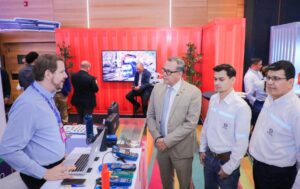With the purpose of establishing a legal framework that promotes the development, research, and manufacturing of robotic technologies in El Salvador, the deputies of the Technology, Tourism and Investment Commission issued a favorable opinion for the creation of the Robotic Technology Law. The regulation seeks to organize the growth of the sector, attract investments and guarantee a safe implementation in areas such as commerce, industry, and education.

Among the main objectives of the law are the inclusion of robotics in the educational system, the creation of favorable conditions for technological development and the generation of specialized jobs. To this end, the National Artificial Intelligence Agency (ANIA) is contemplated as the competent authority, which will have a Robotics Division in charge of implementing and supervising compliance with the regulatory framework.
During the analysis of the regulations, the director of ANIA, Mario Flamenco Rivas, said that El Salvador urgently needs economic diversification, and that robotics represents a strategic opportunity to attract foreign investment and promote high value-added industries. He also stressed the importance of having legal certainty to facilitate the establishment of technology companies and reduce possible legal conflicts.
Manuel Napoleón Cardona, Vice Rector of Science and Technology of Universidad Don Bosco, said that El Salvador could become a regional pioneer if this law is approved. He detailed that worldwide there are 3.9 million industrial robots, while in El Salvador only 42 have been registered since 2008, a figure that evidences the lag in this area.

Cardona emphasized that robotics can dignify human labor by replacing heavy tasks with automated processes, especially in sectors such as light manufacturing. He also pointed out that the legal framework would boost the formation of national talent and strengthen the country’s competitiveness in the region.
Congressman Edgardo Mulato emphasized that, by betting on robotics, El Salvador could go from being an importer to a producer of technology. He explained that this would generate jobs, increase tax revenues and promote a solid supply chain, which would have a positive impact on the country’s economic and social development.






